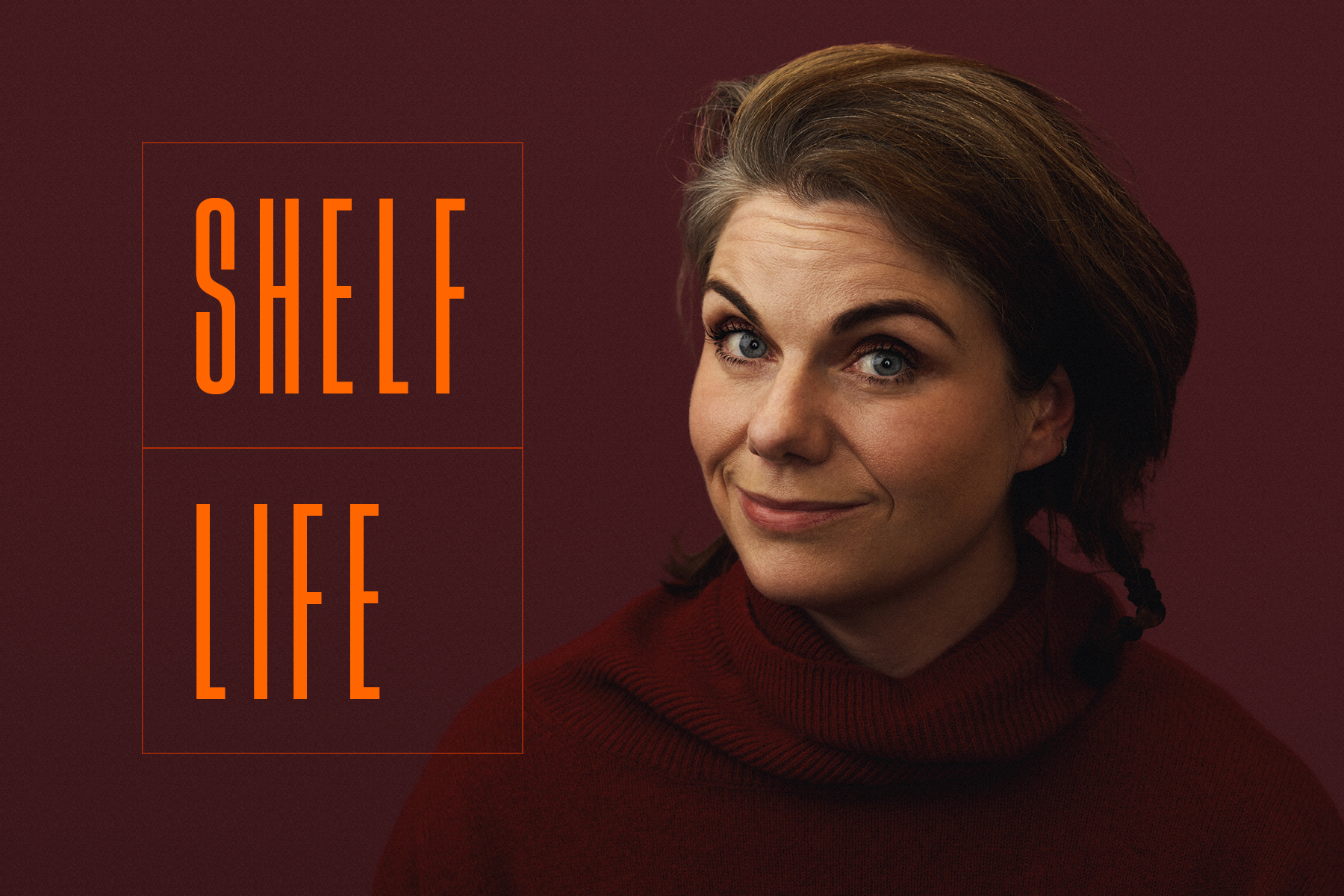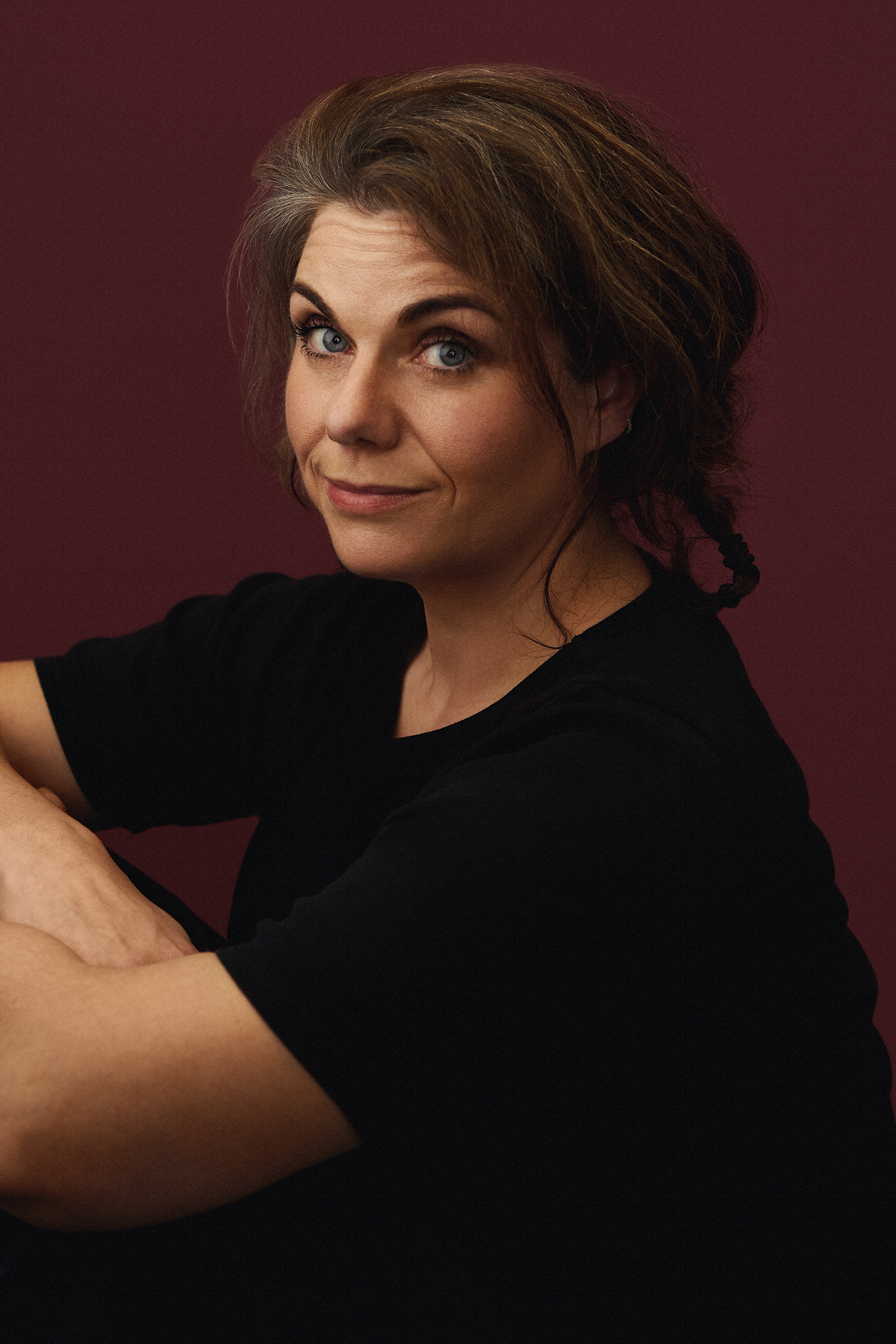
- Home |
- Search Results |
- Caitlin Moran: ‘I thought I’d marry Douglas Adams’
Caitlin Moran: ‘I thought I’d marry Douglas Adams’
The author of More Than A Woman on five books that shaped her life, from loving Little Women to discovering Germaine Greer to recently taking the plunge with Moby Dick.
My parents were really clever in that they kept a big, battered suitcase under their bed full of classic children’s books they’d picked up in jumble sales, and they’d tell us: you’re too small to go into the special box. So that immediately made books a magical, covetable thing. I did the exact opposite with my kids by making them freely available, so they just took them completely for granted and migrated to TikTok at the earliest age instead.
It was only recently that I realised how incredibly lucky I was in only ever reading books written by women when I was young. It was just girls telling other girls their stories. The first book I loved was Little House on the Prairie by Laura Ingalls Wilder, which I read when I was six or seven. Wilder describes what are really normal days are to her, but obviously, they're fascinating to us 150 years later. It’s just such sensualist writing, like the way she'll describe Ma's shepherdess, or cutting out the shapes of trees and stars in white paper to put on the mantlepiece or the way that they make candy by tapping the maple trees and then putting it in snow. It’s such a brilliant recall of what it is to be a child, because that is what you remember: the taste of candy, cutting crisp paper with a pair of scissors, what the weather's or your patchwork quilt is like. I'm sure if I ever had a bump on my head, there's a chance that I might come back round to consciousness and believe that Wilder’s childhood was my childhood, because I experienced it just as viscerally.
'Normal girls' lives are important. You don't have to blow up the f****ing Death Star'
You don't know why you're consciously choosing books at that age, but I guess Little Women by Louisa May Alcott resonated with me because I was in a big family that was very female-dominated, and we were very poor. Again, it's a very visceral, sensual world. I know the description of each of those Bibles that they're given on Christmas Day, the scorched dress, the single glove, the shoes that don't fit, the uncomfortable combs. It just says: normal girls’ lives are important, like a day in which you're just cooking some food and working out what you're going to wear and looking after people. That's enough. You don't need to blow up a Death Star. You don't need to go on a fucking quest.
The first time I felt the power of being a writer, it was in a really bad way. We were doing the plague of London at school, and everyone was supposed to write an essay, and it had to be a minimum of one page of A4. And I stayed in for three lunch breaks and wrote like eight or nine pages, which is a big deal when you’re eight. And it was really dramatic – she got this boy that she loves and she kissed him, then they tried to run away, then the Fire of London happened. Then a friend showed me his, and it was just one page long, and I was so horrified that I'd gone over the top and been inappropriate, I tore it up and quickly wrote a shit one. I remember the cold flush in my heart; I think was the first time I had a proper panic attack.
'I knew I wanted to marry Douglas Adams, so I moved to London'
My dad had this thing where if he read something and laughed, he’d fart. It was his way of showing appreciation. He introduced me to the only three male writers I really cared for until my 30s or 40s: Spike Milligan, Terry Pratchett and Douglas Adams. I was obsessed with Hitchhiker’s Guide to the Galaxy at eleven. It was the first time I saw that, if you want to talk about a big idea, the best way is through humour. It’s like that Stephen Fry quote about humour being ‘intelligence with energy left over to burn’.
In terms of predicting the future, nothing comes close to Hitchhikers. It's like a good version of 1984. The ‘guide’ – the small electronic book that translates everything and often gets things wrong and leads to you making terrible judgments – is an iPhone. Zaphod Beeblebrox is Donald Trump; they install him as president of the universe of the galaxy just because because he will constantly cause kerfuffle and hoo ha and public outrages.
Adam’s was a diviner of the future, but he also formed the template for me of the kind of man I wanted to marry: someone liberal and funny and imaginative. And there weren't really any sort of lovely, clever Cambridge educated liberal men in Wolverhampton. I realised I needed to go to a place where those men are, and I worked out pretty soon that was London.

'She predated ‘mansplaining’ by thirty years'
I read the The Female Eunuch when I was 15. The only time I’d heard feminism mentioned before that point was when my mum disagreed with my dad and he would go: ‘alright Germaine Greer, put a sock in it!’. From that I assumed feminists were bad and humourless and dry. But then I saw Germaine on [TV chat show] Wogan and she was really funny and sparky. She was like a rock star. That was my ‘David Bowie on Top of the Pops’ moment. So much about being a woman in those days was about being scared and trying to keep thing secret, and she was doing the exact opposite.
It blew my mind. I could feel the synapses rewiring. And then when I read the book, I couldn’t believe how it felt like every single page had light emanating out of it. No one ever goes on about how funny she is, but she's always looking for a gag. There's this whole chapter about how much men hate women, which at the time I didn't see at all. Sadly, as I get older, I do see that that is a strain of male thinking that hates women, and they don't even realise it, but they think they get it so they talk over you. So, you know, she predated ‘mansplaining’ by thirty years.
By this point I was working for Melody Maker, and you were encouraged as a rock critic to be fearless and ballsy and iconoclast. But it was all just the kind of things you were allowed to say in a room of men and get by. In those days, there wasn't another room that you could go into that had women in it with an equal amount of power and say the things that were truly transgressive. But by the time I wrote How To Be A Woman [2011], I was ready to be honest about what I actually felt and wanted. And having Germaine, sitting on the sidelines, going: Yeah, it's taken you a while to finally be brave enough to be a feminist, but go for it was really important.
'As you get older and face death, you start getting your head around what art and literature really is'
I always presumed Moby Dick by Herman Melville was just a very long, boring book about fishing. But I started reading it, and in the first chapter he’s just so gay for Queequeg, the thirst is immense. To be writing about interracial lust, at that point in history is amazing. I was reading Oscar Wilde and Virginia Woolf at the same time, and all three of them broke my heart because they were all gay and all in the wrong century. They knew they wouldn’t be accepted for who they were or get what they want, so the books are like messages in a bottle, blown out to sea, waiting to hit shore in another time when people go: Okay, I get you, I see what you have.
The other thing I loved about Moby Dick is that Melville’s putting everything he knows into that book, everything he's learned about whaling and about the oceans and about trees. It’s like he knows he’s had an unhappy life and is going to die, so he’s trying to download it all. And I felt so personally upset for him. He wrote so few books and was not successful at all. In another century, he would have been doing book tours and everyone would have loved him, and Ian McKellen would have been reading his stuff and bringing him on stage, and he would have been part of this brilliant queer uprising. But instead, he just went out and did the whaling and then worked as a clerk in an office and died.
When you're a kid, you want the sensual littleness of things like Little House on the Prairie. But as you get older and you start facing death, and you start really getting your head around what art and literature is, you think about how it is people manage to make an idea travel through time and achieve any kind of permanence, to make sure that in thousands of years, anyone ever really knew they existed. When you read something like Moby Dick, it's like such a desperate act of just wanting to live forever. And that moves me to tears. You just want to travel back in time and go: I got it. I get it.
More Than A Woman is out now.
What did you think of this article? Let us know at editor@penguinrandomhouse.co.uk for a chance to appear in our reader’s letter page.